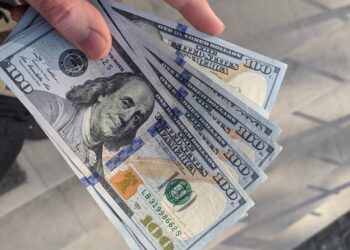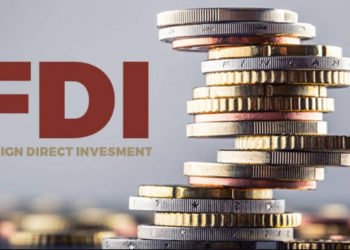Nigeria recorded a sum of $6.7 billion as capital inflows from foreign countries in 2021, dropping by 31% compared to the $9.7 billion received in the previous year. This represents the lowest inflows recorded since 2016.
This is contained in the recently released capital importation report for Q4 2021, published by the National Bureau of Statistics (NBS).
According to the report, Nigeria attracted its lowest foreign inflows in five years, since 2016 when its capital imported was stated at $5.12 billion. The Nigerian economy has been suffering from an FX crunch, occasioned by a significant decline in foreign inflows, either in form of investments or remittances.
For example, if we deduct the $2.38 billion received as loans in the review period, it means that Nigeria only received $4.32 billion as capital importation in 2021.
Highlight of the report
- Foreign direct investment in Nigeria was stated at $698.78 million, which is 32% lower than the $1.03 billion recorded in the preceding year.
- FDI recorded in 2021, is also the lowest on record, based on annual data tracked by Nairametrics Research.
- Similarly, foreign portfolio investment fell to its lowest level in 5 years at $3.39 billion, dropping by 34.1% compared to $5.14 billion recorded in 2020.
- A further breakdown of the data shows that most of the FPIs were received through investments in money market instruments, with $2.61 billion inflow.
Sectors with the highest inflow
- Shares received a sum of $1.09 billion as foreign inflows in 2021, which accounts for 16.3% of the total capital imported by Nigeria in the period under review.
- Nigeria’s banking sector attracted over $1.46 billion foreign inflows, representing 21.8% of the total inflows recorded in 2021.
- The manufacturing sector followed with $934.11 million inflows, which is 13.9% of the $6.7 billion foreign inflows recorded during the review period.
- Financing attracted $784.23 million, while tanning with $645.59 million inflows accounted for 9.6% of the total inflows by Nigeria.
Nigeria’s foreign reserve continue to dwindle down following the negative foreign trade balance recorded in 2021, and falling capital importation. Nairametrics had reported that the state of insecurity in Nigeria is a major factor militating against foreign direct investments.
Nigeria is also suffering from double-digit inflationary pressure, exchange rate volatility and just recently energy crisis, which has seen the price of diesel hit record highs. This has resulted in a significant surge in the cost of transportation and services.
What this means
If this trend of lower foreign inflows continues, this could add to the pressure already on the nation’s external reserve from intervening in the official FX market, a situation that could further weaken the exchange rate if it lingers.
Hence, the Nigerian government needs to improve Nigeria’s export capacity so as to earn foreign exchange to meet our import bill obligations and bolster our foreign reserve level.






















